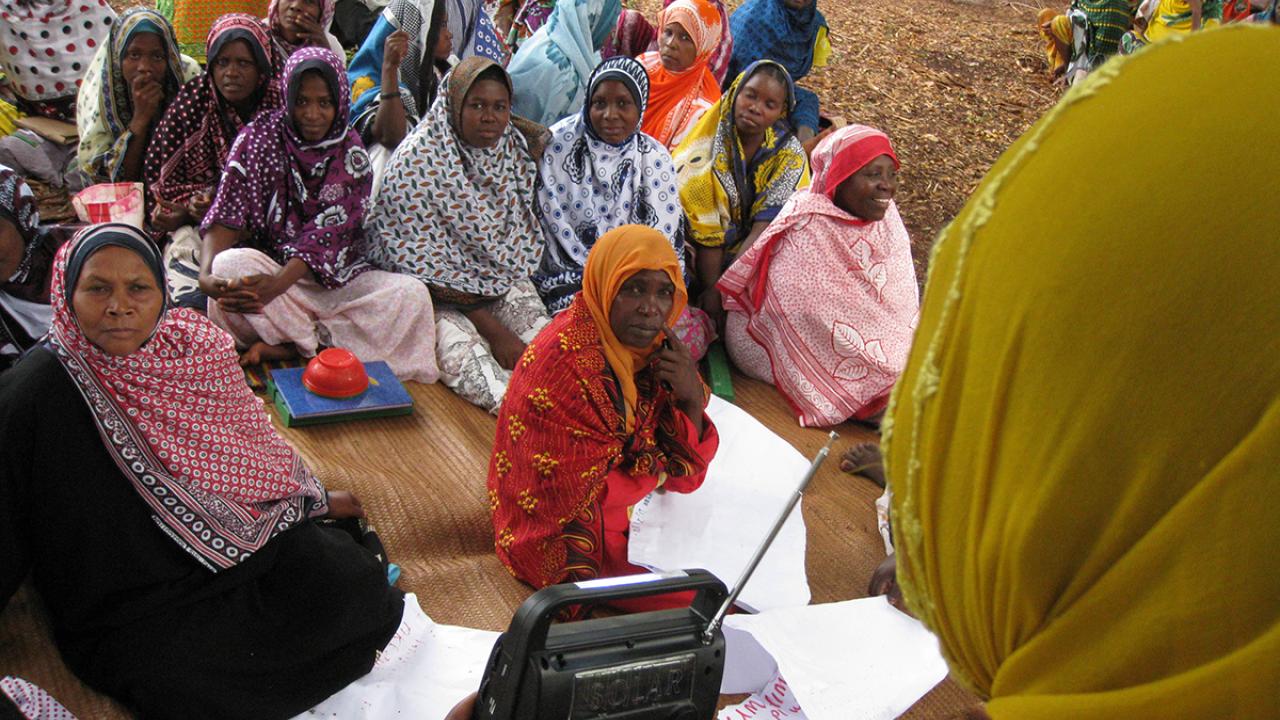
MRR Innovation Lab Associate Director to Co-Lead Working Group on Scaling Disaster-Risk Finance
An increasing risk of weather-related disasters has created new urgency to rapidly scale solutions that support rural families in developing countries whose livelihoods are most at risk. One of these solutions is climate and disaster risk finance, but it requires an international effort to implement for all rural families.
MRR Innovation Lab associate director Tara Chiu has been appointed co-chair of the InsuResilience Global Partnership Impact Working Group and will help to build a broader dialogue around evidence and impact. Chiu brings more than a decade of experience managing a wide portfolio of USAID-funded research on agricultural index insurance and consulting on index insurance implementation and scaling for national governments and NGOs.
“Insurance, as form of climate and disaster risk finance, can be a powerful means of supporting rural families who otherwise might be pushed into dire circumstances with lasting consequences,” said Chiu. “To achieve this promise, it’s critical that insurance be implemented responsibly so it does not cause harm while intending to do good.”
Chiu helped to develop the Minimum Quality Standard (MQS) for index insurance in partnership with MRR Innovation Lab director Michael Carter and their colleagues that remains the only objective measure of index insurance quality. MQS is an objective, data-driven measure that calculates the likelihood that an index insurance contract will leave a household worse off for having purchased it.
The Impact Working Group is one of the InsuResilience technical working groups. Its role is to strengthen the partnership’s Monitoring & Evaluation and Learning systems that will define global standards for impact measurement and monitoring of climate- and disaster-risk finance solutions.
These systems also measure progress towards achieving the Vision 2025, which drives InsuResilience efforts to enable a substantial scale-up in the use of climate- and disaster-risk finance and insurance. The partnership’s ultimate goal is to strengthen resilience in developing countries by enabling faster, more reliable and cost-effective responses to disasters.
Chiu and Carter recently contributed to the InsuResilience publication, “A Strategic Evidence Roadmap for Climate and Disaster Risk Finance and Insurance,” a document that leverages the current state of evidence into responsible and sustainable scaling of finance and insurance to support resilience. This document charts a course to achieving Vision 2025. Chiu and Carter co-authored the roadmap’s section on People and Client-focused Perspectives.
“The quality of insurance and disaster-risk finance products is often not carefully considered when it comes to scaling, and this blunts the potential of future products that truly are higher quality,” said Chiu. “A focus on quality is part of the pro-poor principles that ensures InsuResilience truly provides benefits for vulnerable families.”
The InsuResilience Global Partnership was launched at the 2017 UN Climate Conference in Bonn. Since its launch, more than 110 member institutions comprising governments, civil society, international organizations, the private sector and academia have joined. The Partnership aims to strengthen the resilience of developing countries and protect the lives and livelihoods of poor and vulnerable people against the impacts of disasters.
Chiu shares her co-chair appointment with fellow co-chairs Vositha Wijenayake, executive director of Sylcan Trust, and Soenke Kreft, executive director of the Munich Climate Insurance Initiative (MCII).
